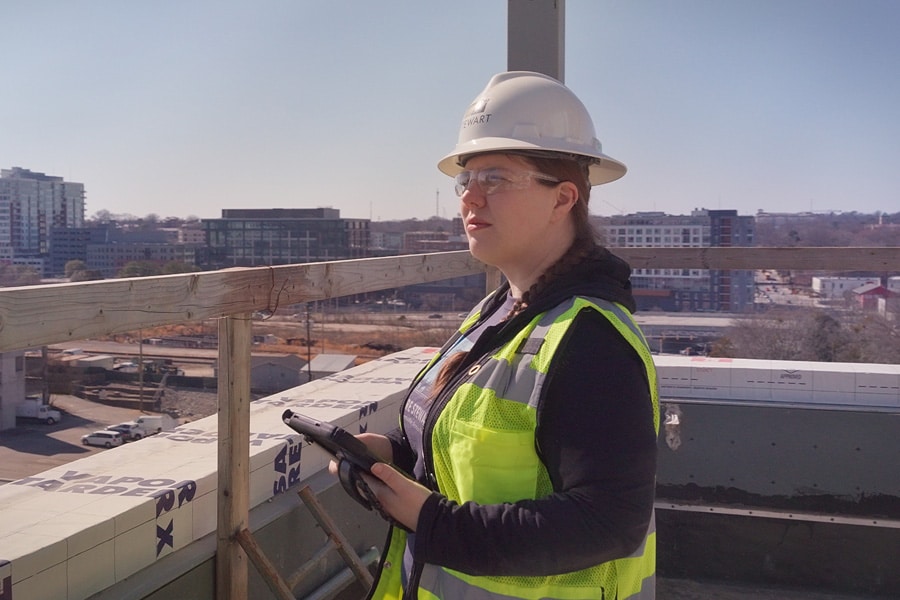“Our society is very wasteful,” laments Christine McHugh, a commercial real estate consultant for New York City-based investment firm Evercore.
McHugh, who has provided program and project consulting on complex global construction and real estate projects over a 30-year career, is extremely passionate about environmental sustainability—and not just in her professional life.
It’s why in her spare time McHugh retrieves discarded furniture off the street to repair and donate. It’s also why, in addition to her bustling career, she’s bought and fixed up residential properties.
These tendencies likely developed during McHugh’s childhood growing up with four siblings and two parents who she described as “do-it-yourselfers.”
“Where I come from, things can be done by yourself,” McHugh said.
When her parents built a new home when she was young, for instance, McHugh said she and her siblings became a critical part of the project’s labor, doing all kinds of construction work.

McHugh’s sustainability mindset has also driven her professional life.
It started with her undergraduate degree in architecture and construction, which she earned at the Wentworth Institute of Technology. After she graduated and gained high-level knowledge while teaching AutoCAD via a part-time job, McHugh got a job with a small architectural firm embedded within a larger global company.
The ability to do layouts quickly thanks to her advanced knowledge of AutoCAD caught people’s attention. Her boss asked her to develop a budget and schedule for the layouts. McHugh had never done this type of work but was undaunted. “Project management was a natural progression,” she said, “and I learned as I was doing.”
From there, McHugh went to work for the Arthur Andersen real estate group as a project manager on test fits. In that role and others since, McHugh has managed large capital projects for global corporate interiors, owners/developers, hospitality, health care, luxury residential and retail industries. In these roles, McHugh has played a part in developing corporate standards and practices that are conscious of diversity and sustainability.
To this end, McHugh constantly has waste in her crosshairs. “Where I see waste, I try and change behavior,” McHugh said.
McHugh recalled an example in her most recent work with Evercore on a 450,000-square-foot expansion project in midtown Manhattan.
While on the job, McHugh goes through a process that includes questioning whether required construction materials can be purchased for less money, which is part of her role as an owner’s representative. In this case, there was an issue with lighting; McHugh found an alternative produced in America that resulted in carbon reduction. It also saved her client $135,000 per floor (10 floors in total) on the material.
Aside from environmental sustainability, McHugh’s interest in diversity also began at a young age while playing high school sports. It was then she became aware of Title IX, a federal civil rights statute that forbids gender discrimination in education programs that receive federal funding.
McHugh said she was annoyed that the law was even necessary. “Why wasn’t it fair to start with?” she said. When McHugh began her career in the early 1990s, she was one of the only women in the industry, she said.
As part of McHugh’s role, she hires construction workers, and she makes a point to try to increase opportunities for tradeswomen. To help increase the number of women in the construction trades, McHugh is also a member of New York City’s Nontraditional Employment for Women Ambassadors Council. The organization trains women to be in the NYC union trades. McHugh also coaches women on how to write resumes and negotiate their compensation.
“I don’t think of myself as a female when it comes to work,” McHugh said. “It’s irrelevant.” She suggests other women who are entering the construction and real estate industry do the same. It’s about the work and not bringing attention to yourself because of your gender, McHugh said. The goal is to have the right members make up the team.
















